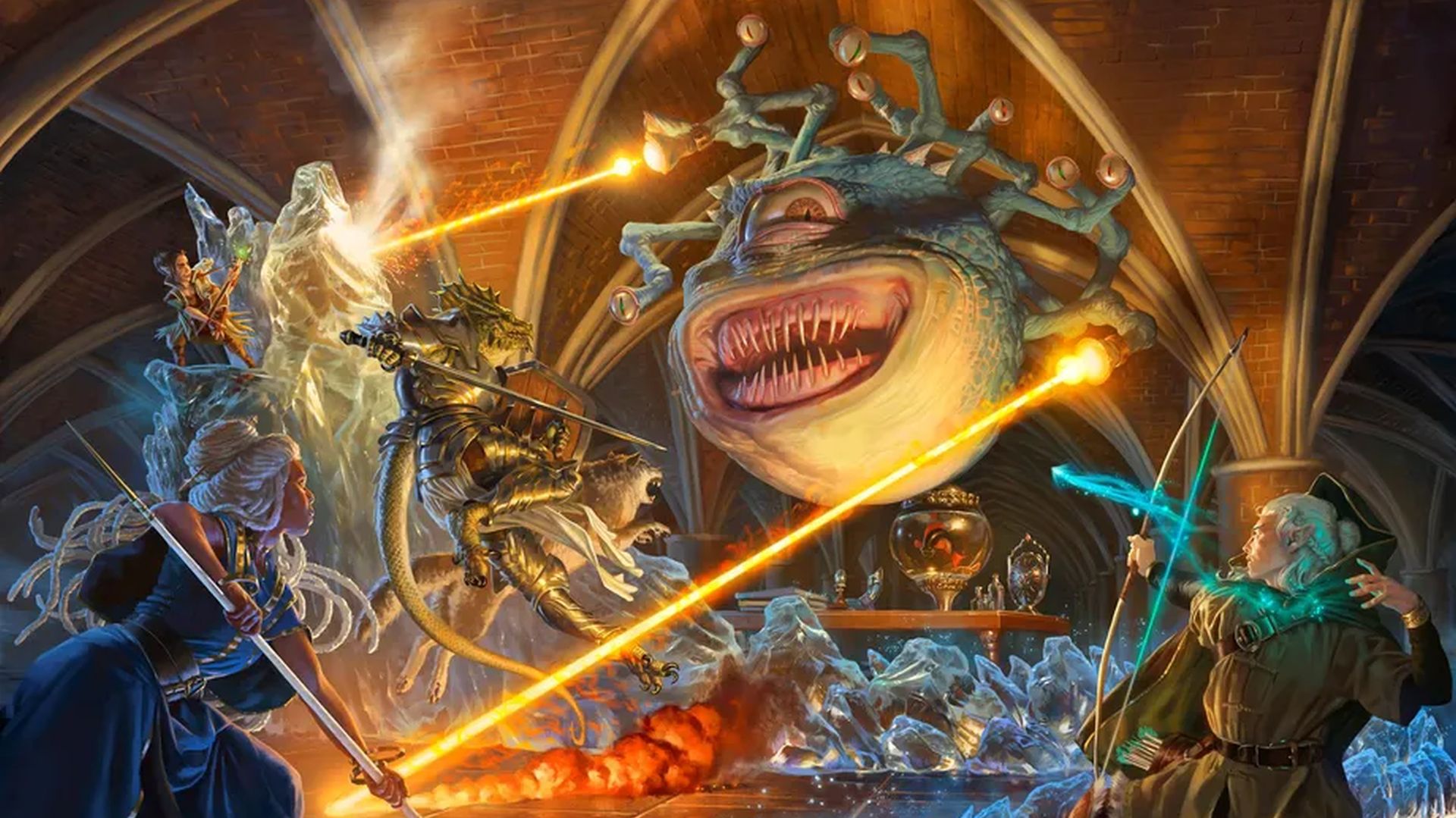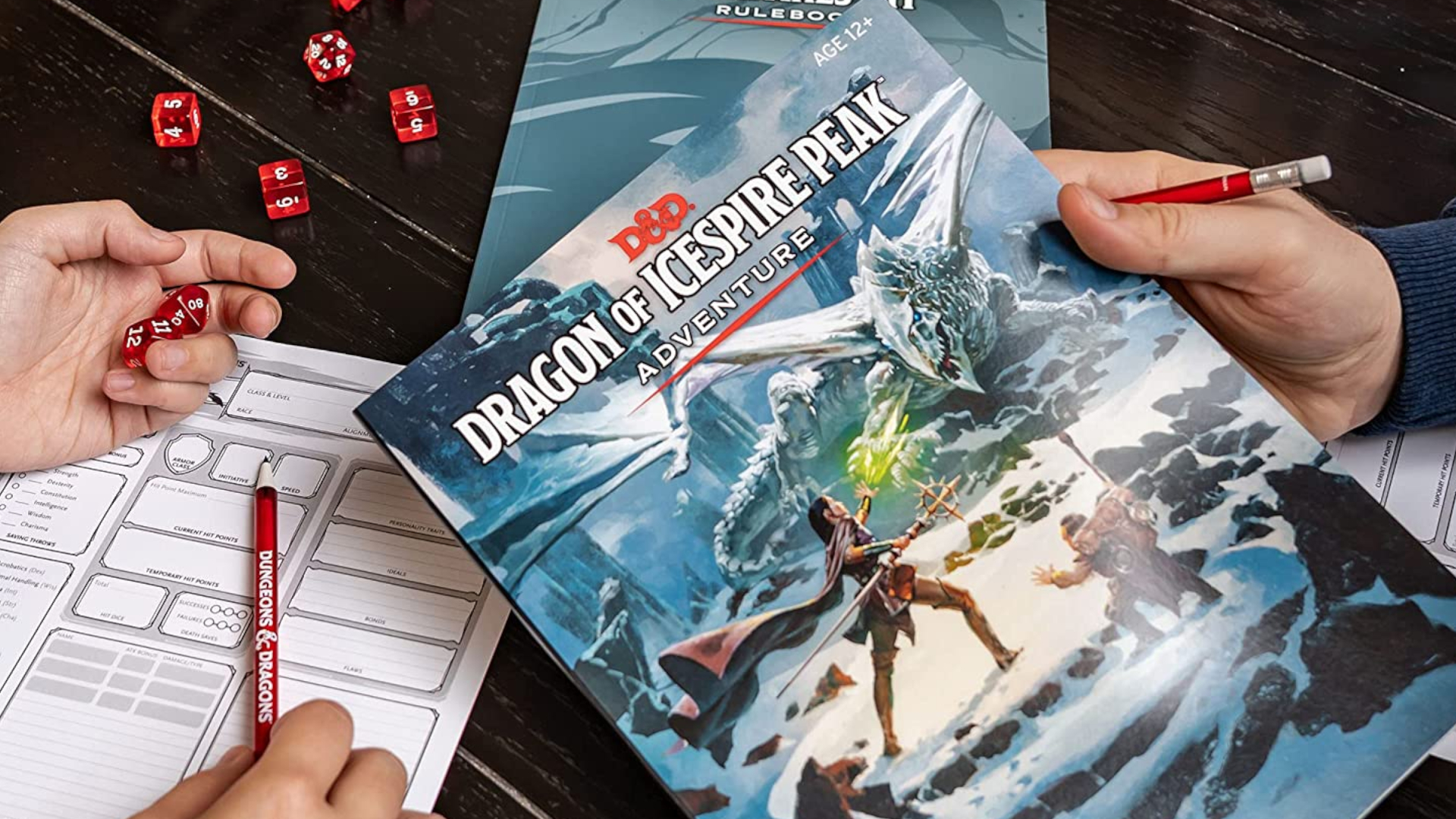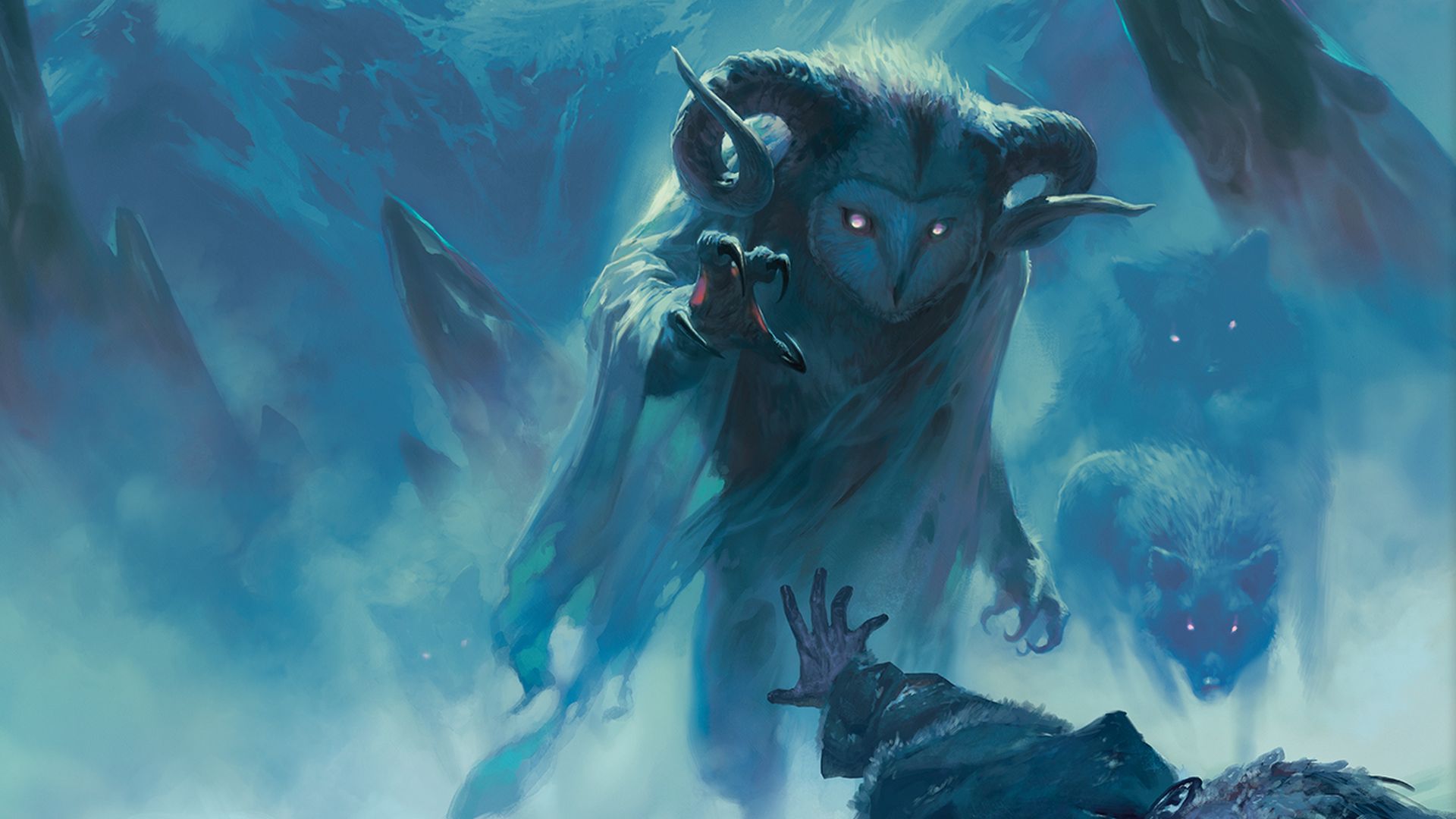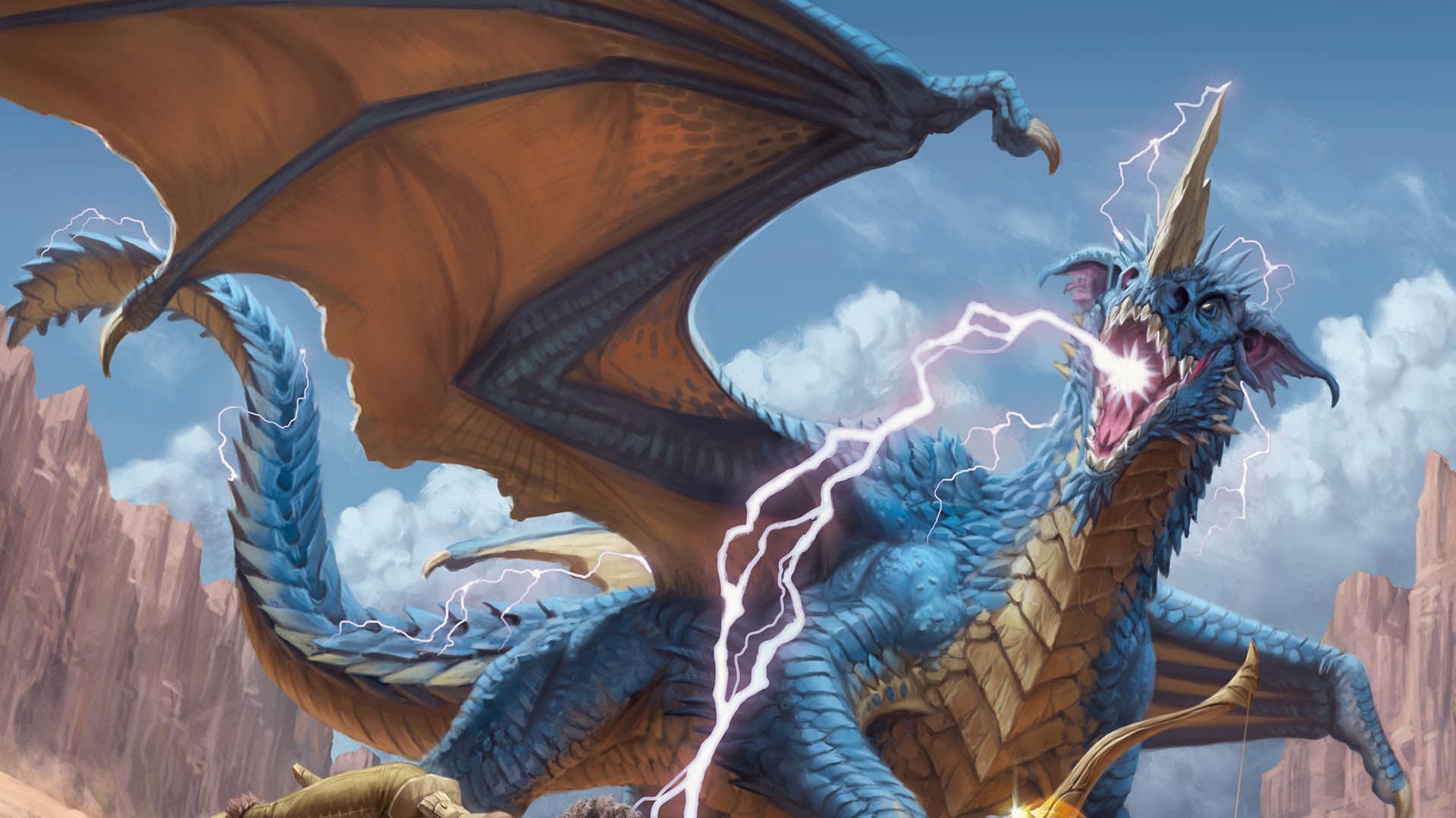Dark Souls RPG dev on D&D licensing controversy: "The revolt has already begun"
Following the D&D OGL uproar, Wizards of the Coast might have created its next major rival

If the D&D licensing controversy was a game session, it'd be the sort of garbage-truck-on-fire disaster that becomes legendary amongst your group. But the reality isn't something you can laugh about over a beer. For third-party creators like Richard August, lead RPG writer at Steamforged Games (perhaps best known for its tabletop adaptations of Dark Souls and Elden Ring), it's an own-goal that was "badly misjudged on every conceivable level". In fact, it may have created D&D's next big rival.

It seems like the uproar over a new D&D OGL worked; since this article was published, the company has completely backed down from those controversial changes in a surprise heel-turn.
Original story follows.
The original D&D Open Game License - or 'OGL' - has been kicking around since 2000, allowing other creators to use mechanics from one of the best tabletop RPGs in their own products. The result was a thriving community that tackled new concepts or expanded on ideas D&D publisher Wizards of the Coast had introduced.
"The OGL became this very fertile ground for small companies to get a start," August explains when we catch up to discuss the issue in mid-January. "It basically created the modern industry as we know it. And while it didn't provide direct money to Wizards, what it did create was an ecosystem in which everything fed back into D&D. To make use of these games you needed the Players Handbook, you needed the Monster Manual, you needed the DM's Guide. It was essentially a brilliant marketing strategy because it solidified D&D as the biggest game on the market."
A lack of initiative

Shortly after New Year, an unexpected resolution emerged. Via a document leaked to io9, it was revealed that a new OGL would be changing all that. Invalidating the original, OGL 1.1 put forward an array of unpopular changes, but the headline was the introduction of royalty payments. Any D&D creator earning more than $750,000 a year would have to pay 25% of its profits (or 20% if made through Kickstarter) to Wizards of the Coast. It was a crippling blow to many third-party creators, leading to a public outcry where so many fans canceled their online D&D subscriptions that it crashed the page.
"The margins in RPGs are razor-thin as they are," says August, "and once you start paying out 20% of anything you're earning over $750k, it's unsustainable."
People aren't going to play ball
Richard August
As the team behind a D&D-powered Dark Souls RPG, Steamforged is one of the groups in the firing line for this change. While August thinks the company could weather that storm, it would still be a death-knell for projects and livelihoods across the industry at large.
"People aren't going to play ball," he says, "because the impact would be to basically make a huge number of smaller companies financially unviable, and the larger companies would be paying an enormous chunk on not that much. How are you going to pay a decent number of staff? How are you going to ensure quality control?"
Sign up to the GamesRadar+ Newsletter
Weekly digests, tales from the communities you love, and more
The inevitable conclusion, according to August? A once-thriving industry that becomes a shadow of its former self - either "a semi-exploitative cottage industry" that relies on fan goodwill to crowdsource certain elements, or one that produces fewer books, of a lower quality.
The trust waterfall
When we spoke to August, he suggested that Wizards of the Coast would have to address the community's concerns sooner rather than later. A few hours after our conversation, the developer finally responded to the licensing outrage by reversing many of these changes and stating that it would "appreciate the chance to make this right." However, from the perspective of some creators, August included, it may already be too late.
"I think the revolt has already begun," he notes. "Once that trust has gone, it's gone forever. D&D is not gonna have the same feedback loop of high-quality third-party productions to encourage people to go back to those core books, to remain involved. That's not to say D&D won't carry on being the biggest game, [...] Wizards will probably walk this back and attempt to recapture some of the good will they have lost. But I think its status as the number one game will be much more tenuous than it has been as a result of this. The smaller companies are not going to want to get into bed with Wizards. I think we'll probably see more companies producing material for [D&D rival] Pathfinder, and I think we will see a huge spate of similar-ish systems."
That eventuality would likely eat into Wizards' earnings, but it also risks cannibalizing its own market. August hopes that Pathfinder publisher Paizo announcing a competing license of its own will help to unite the community, but no matter what, the genie's out of the bottle. As such, Wizards might have inadvertently created a major nemesis for itself going forward.

It's not the first time this has happened, of course; unpopular changes from third to fourth-edition D&D were what spawned Pathfinder, the game that arguably remains D&D's biggest competitor. But this time, things are different - that paradigm shift stemmed from distaste over a single game (and eventually led to the all-powerful 5e), but now "the entire hobby is arrayed against [Wizards]." What happens next all depends on whether we've gone over what August describes as the 'trust waterfall' - a point of no return.
"I think most companies have crossed it already," he says. "It's probably the end of that 'golden age' of D&D [being] the king, and most games being happy to be in its shadow. I think we'll see a lot more big plays for market share, and some companies will be in a position to take a big chunk of the market."
And it's not just companies. Plenty of mid-tier Wizards competitors have already spoken about their post-OGL plans, but August also highlights the impact on the grassroots: "[The current state of D&D] works [because of] hardcore fans. Because that's who GMs your games. And we already know there is a huge GM shortage. So what they are doing, essentially, is fucking over those people who are hardcore fans. And there's a huge crossover between the people who go out weekly to GM in their stores and run the Adventure League and those who write third-party material. And [Wizards] has essentially spat in their eye."
No matter what, it's an unnerving new era for the tabletop RPG industry. We'll have to wait and see what the future holds, but it's unlikely to ever be the same.
More than 60,000 people have signed an open letter condemning the new OGL. Want a distraction from all the drama, on the other hand? Check out our guide to the best board games, essential board games for 2 players, and these must-have board games for adults.

I've been writing about games in one form or another since 2012, and now manage GamesRadar+'s tabletop gaming and toy coverage. You'll find my grubby paws on everything from board game reviews to the latest Lego news.
- Ali JonesNews Editor


